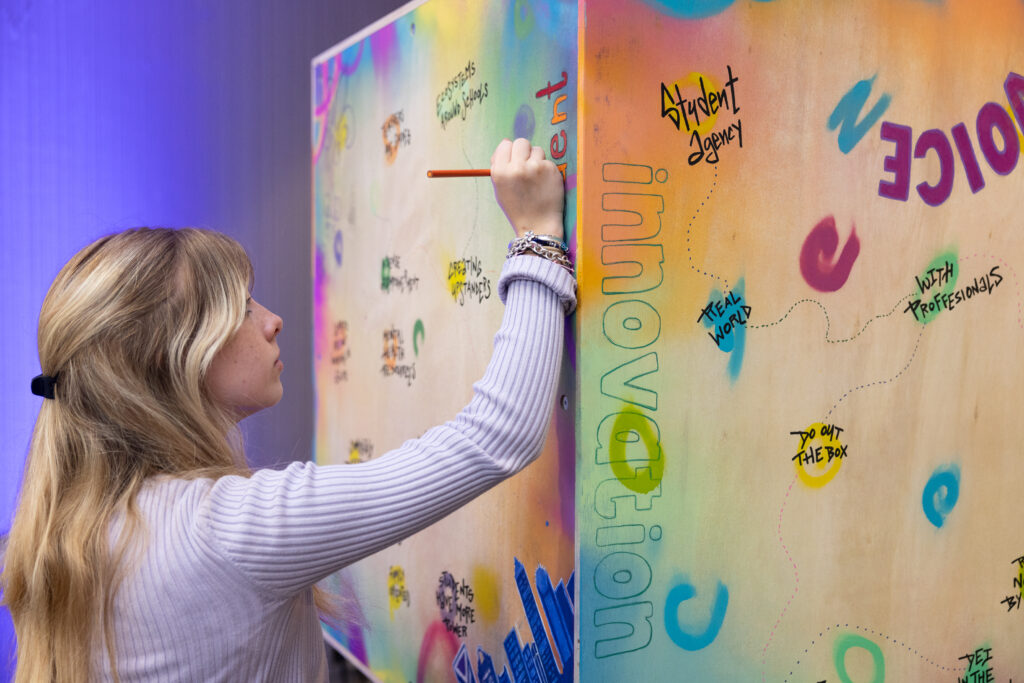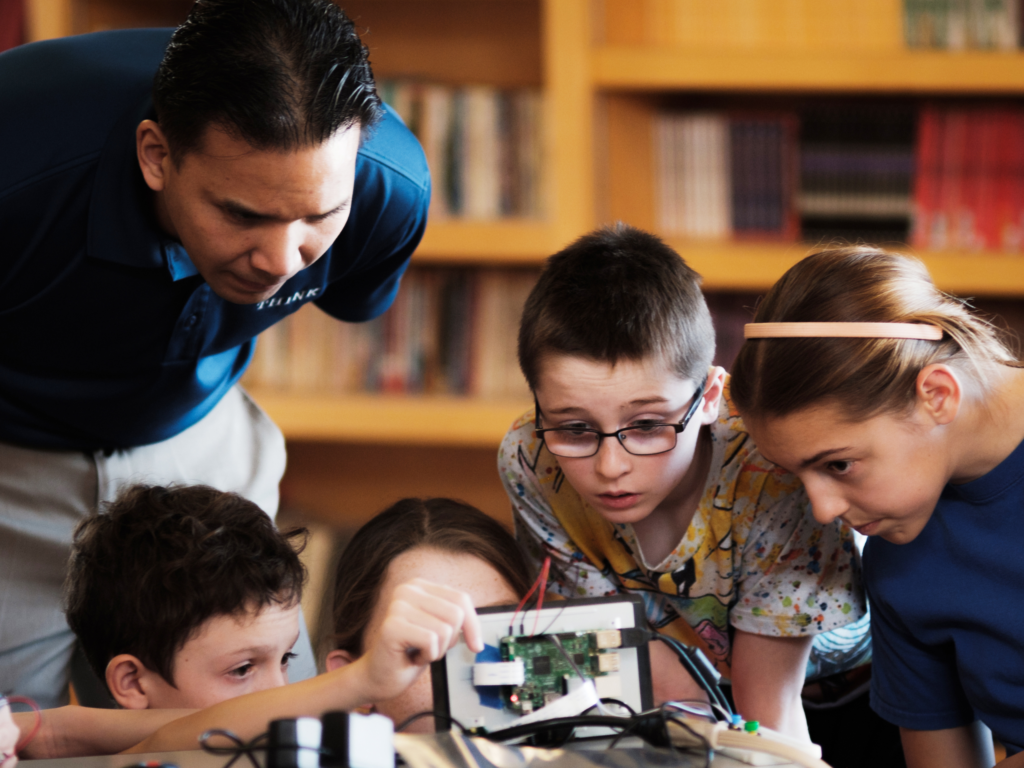Last week I was in Austin for SXSWedu, which I’ve attended every year since its launch. I thought I’d share some excerpts from my trip notes:
- Shark tank has jumped the shark at South-By. Several sessions used the popular television show for inspiration. Here’s a rundown on three of them:
- Teachers could pitch their classroom innovation ideas to judges and a studio audience in a shark tank edu session, followed by a shark-tank themed after-party.
- LaunchEdu ran throughout the conference, which is a pitch contest for early stage education companies. Zaption was this year’s winner (also a NSVF investment). As a finals judge I was referred to as a shark, and there was an after-party.
- In a session called Teacher Tank, great teachers with shark fins attached to their heads saw demos from ed tech companies and gave them insightful, hard feedback. Given this was an 8am session, there was no after-party, at least not that I’m aware of.
- Tanesha Dixon (DC public schools teacher), Jon Deane (CIO of Summit Public Schools), and I were on a panel about personalized learning, moderated by Seth Reynolds from the Parthenon Group. We had great attendance and tried to have a concrete yet nuanced discussion. Some themes that stood out for me:
- The most interesting school models emerging are aiming for an expanded definition of student success. Doing well on important exams is a critical sign of academic preparation, particularly for low income students, because these instruments are often the ticket to further opportunities. But if we’re just using instructional software to help kids score a little better on tests and calling it personalized learning, let’s stop.
- Personalized learning has two key elements that are important to long term academic and personal success: students have more control over their learning and can navigate through content and skill development via competency-based pathways. Technology is a key enabler of being able to do this with high quality at any kind of scale, but the most important factor is the way students interact with each other and their teachers in pursuit of their learning goals.
- The shift to student control and competency-based pathways fundamentally changes the relationship students have with their school work. Rather than seeing assignments as discrete tasks to be completed at the behest of their teachers, students can see the bigger picture of where they are headed, take responsibility for setting goals and moving toward them, and connect what they are learning to their longer term aspirations.
- One policy change that could accelerate innovation and adoption of personalized learning environments is related to accountability. Rather than measuring the absolute percentage of students scoring proficient on their grade level test in a given year, next generation accountability systems should reward the rate of learning growth for each student every year, and continue to pay special attention to struggling learners. This would recognize educators for helping students fill in gaps in prior knowledge and accelerate beyond their current grade level rather than getting a specific score on an end of year exam.
Of course, we were just one of 100s of panels and workshops over the four days. With 20 – 25 sessions running at once, all day for several days, it’s difficult to navigate the conference and predict where high quality conversations are likely to happen across the sprawling, sometimes seemingly duplicative sessions. This is one downside of the crowdsourced mechanism SXSW uses to generate content. I hope the conference team will consider playing a more active curation role in the future.


